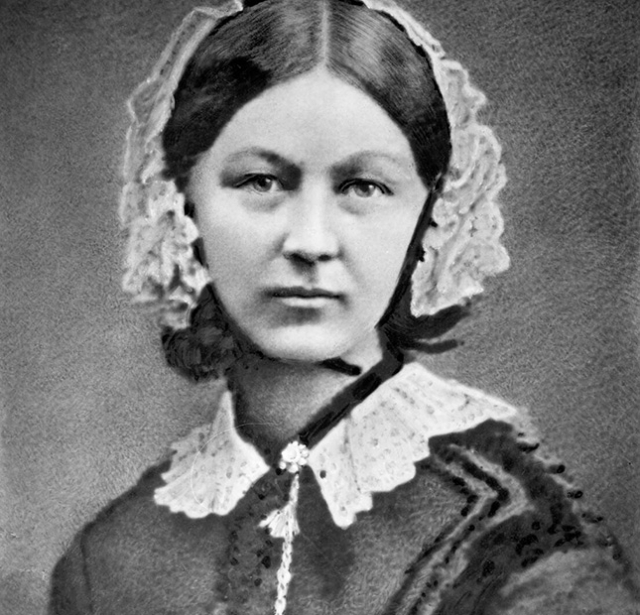Beyond the ‘lady with the lamp’ – celebrating Florence Nightingale’s 200th birthday

Beyond the ‘lady with the lamp’ – celebrating Florence Nightingale’s 200th birthday
This year [2020] will see the 200th anniversary of the birth of Florence Nightingale. The anniversary is on 12 May (not very convenient for Women’s History Month in March but I’ll come to that in a moment) and there will be events and talks in her honour.
When I was at school we learnt in a very simplistic way about Florence Nightingale and her almost magical lamp that she used as she swished (due to the long skirts) around the wards of the military hospital in the Crimea. At the age of eight I had little understanding of the complexity of medical practices of the 19th century or the treatment of soldiers on a battlefield and therefore why she was such an impressive character. It is only as an adult when I investigated the history of nursing that I realized just how pivotal, focused, single-minded and tenacious she was.
Pioneer and campaigner
Now remembered as the founder of modern nursing, Florence Nightingale was much more than that – she was also a lobbyist, a political campaigner and not afraid of hard work. Born into a wealthy family, she was able to be educated and she used her knowledge, connections and sense of status to make changes to the social conditions around her. She wrote a novel Cassandra in which she spoke about the fact that women of her class were trapped into simple pursuits, and she was determined not to do the same.
This is important and indicates another reason she ought to be remembered. By campaigning for nursing to be professionalised and acknowledged she not only helped save the lives of millions of people; she also provided one of the first respected forms of trained employment for women. That is not to say that only women can be nurses, of course; rather that historically nursing allowed women a profession that enabled them to build a career and provided them with respect and independent living.
So Florence Nightingale, who purposely chose not to marry, has helped empower millions of other women to make their own choices, as well as professionalising and elevating nursing so that it could benefit the rest of society.
Not just one month for women’s history
Nightingale (and the many others like her) should be remembered as a pioneer who carried out her aims despite the prejudices against women of the time. Her story deserves to be about far more than just her tending to wounded soldiers, which is why it is great that her birthday is not conveniently in March for Women’s History Month, as there is a chance that she will get some notice for women’s history in May as well.
However, more importantly she – like many of the women that were campaigning for change during the 19th and 20th centuries, such as the suffragists – were campaigning for all society, not just for women. While the suffragettes were focused on rights for women, the suffragists and the wider democracy movements were about greater rights and representation for all individuals.
Nightingale may have started out by helping male soldiers in the Crimea, but her full campaigning activities were about better conditions in healthcare and health provision for everyone. Women such as Nightingale and the suffragists deserve to be remembered throughout the year, not ascribed one month only.
So do celebrate Women’s History Month, but think like Nightingale and the suffragists of her generation and make women’s representation valued equally and fairly at all times; half the population merit far more than a mere 12th of annual representation in history. Maybe this March should be this generation’s start of a campaign to make the idea of Women’s History Month obsolete because equality will be every day?

